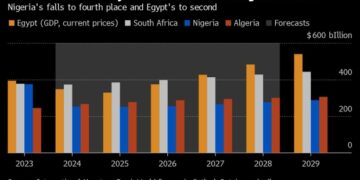Former Minister for Finance, Seth Terkper, says government will this year be forced to implement austerity measures due to the tight fiscal space government has to operate in.
The pursuance of austerity measures given the tight fiscal space of government, Mr Terkper, says will make 2021 a difficult year for Ghanaians.
His prediction is premised on analysis made by some multilateral institutions such as the International Monetary Fund (IMF), which has projected Ghana’s economy to end 2020 with a debt figure of 77 percent of GDP as well as Moody’s downgrading of the economy’s outlook to B3 Negative over the mounting debt situation.
Further compounded with the deplorable fiscal situation of the country compares to that of a Highly Indebted Poor Country’s (HIPC) economy.
For the former finance minister, such developments only mean government will be frugal in its spending as persistent revenue shortfalls have been a major challenge for the government, coupled with the fact that the widening fiscal deficit, will only end up in an austerity budget.
“We need a wakeup call and that it is not going to be easy at all. The Moody’s report shows things are not palatable at all. Then the World Bank also has expressed concerns about the BoG’s deficit financing. Then Fitch has also done a downgrade; and the Bank of Ghana’s governor is also saying deficit financing will no longer be possible.”
“All these institutions have warned of deficit, they have warned of debt; they have warned of Bank of Ghana financing; they have warned us on expenditure ballooning and of revenue being flat, among other things. And you can’t have all these global institutions warning us and we pretend nothing is wrong,” he said in an interview.
Finance Minister Ken Ofori-Atta said during the presentation of first quarter budget that government will borrow from the international bond market, comprising the issuance of sovereign bonds of $3 billion with the option to increase it to US$5 billion should market conditions prove favourable.
Of this amount, he said, $1.5 billion will be used to support the 2021 budget and the remaining $3.5 billion for liability management.
Meanwhile, government has promised an ambitious capital-intensive projects for the year which include what it calls Agenda 111 district and regional hospitals, which commenced in 2020 to ensure health facilities are available in all deprived places; and also the Year of Roads project – all these to be financed through borrowing.
But the Moody’s report says interest expenditures on the debt are set to rise to 6.8 per cent of GDP, up from 5.4 per cent of GDP in the budget, thereby, consuming over to 50 per cent of total revenue.
The rating agency further warned that a further weakening in debt affordability amid persisting refinancing risks would indicate a fundamental deterioration in government’s debt-service capacity, resulting in another downgrade at the next rating.
And again, it also expressed concerns about government’s reliance on the central bank to finance the budget, a practice that came to a halt after the country entered an IMF External Credit Facility (ECF) some few years ago.
“Since these multilateral institutions support our budget, they will push for austerity and if you don’t, they will come after you. So, it is about time we told Ghanaians that 2021 is going to come with austerity, and if we defy it, is at our own risk. We are going to borrow to finance the budget and the markets will listen to the IMF, and the IMF is saying we are at high risk of debt distress. So, we need to be realistic about the situation and know it will be an austerity year,” he said, maintaining that government will be forced to pursue austerity measures even if it doesn’t want to.
Austerity is a set of political-economic policies that aim to reduce government budget deficits through spending cuts, tax increases, or a combination of both. Austerity measures are often used by governments that find it difficult to borrow or meet their existing obligations to pay back loans.
The measures are meant to reduce the budget deficit by bringing government revenues closer to expenditures.








